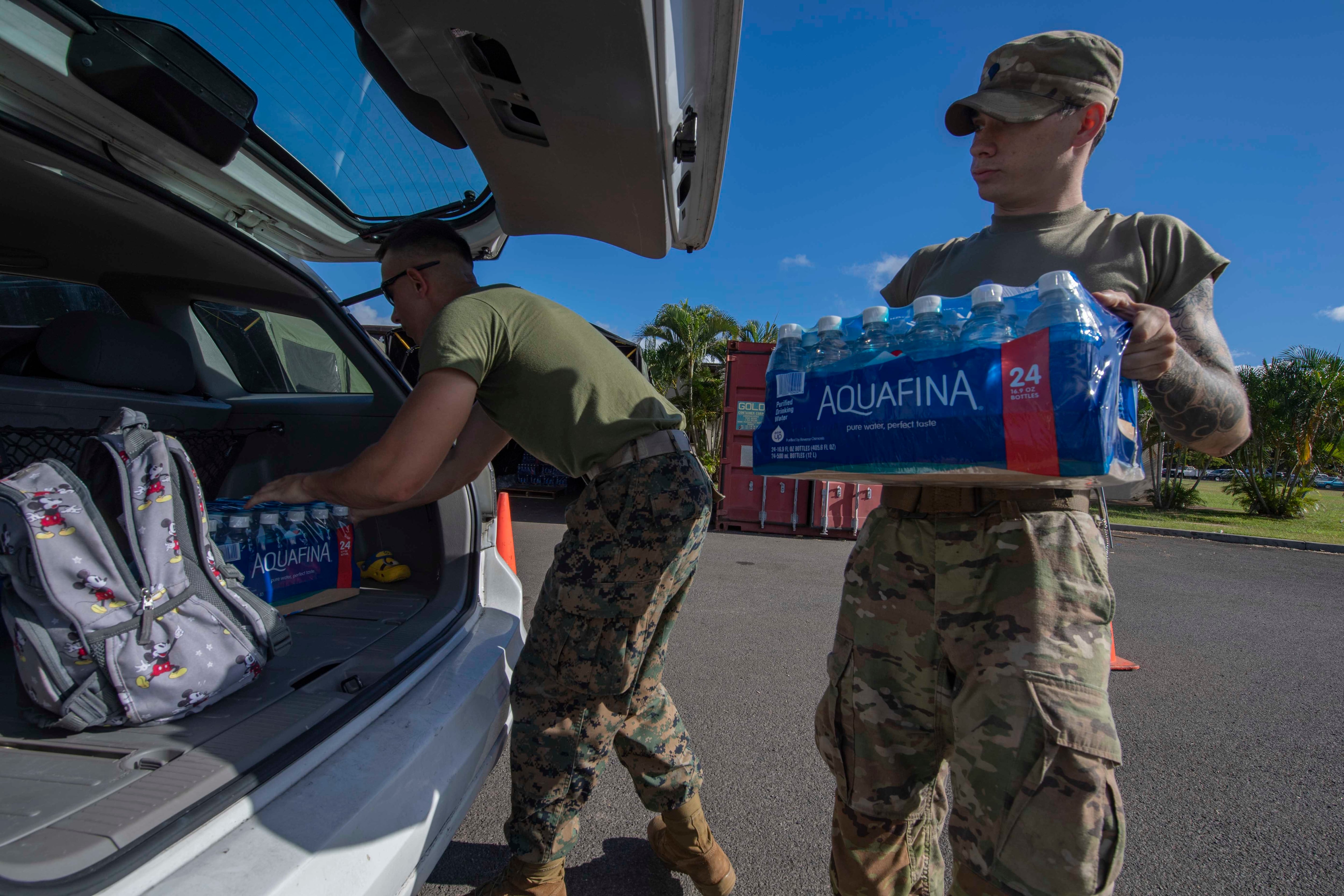A “concerning and persistent number” of service members and their families don’t believe the military has done enough to address health concerns related to the Hawaii water crisis, according to Hawaii lawmakers.
The lawmakers have asked Secretary of Defense Lloyd Austin to order a review of the military’s response, in an Aug. 26 letter signed by Hawaii Democrat Sens. Brian Schatz and Mazie Hirono, and Democrat Reps. Ed Case and Kaiali’ Kahele.
Some 9,715 households in Army, Navy and Air Force neighborhoods — about 100,000 people overall — were affected by an estimated 19,000-gallon jet fuel spill at the massive Red Hill storage facility, which contaminated the Navy’s water distribution system in November 2021. Although families started complaining about the oily film and smell of fuel in their water, Navy officials initially insisted the water was safe to drink.
Some families had been experiencing mysterious symptoms before they knew about the fuel spill, reporting symptoms such as abdominal pain, vomiting, diarrhea, memory loss, skin rashes, eye irritation and teeth and gum issues.
The lawmakers are asking for a review of:
- The avenues available for residents to get their health concerns addressed by the military
- The quality and frequency of testing, and the ease with which residents can understand the information
- The access to full medical care for those who believe their health has been affected
- Whether there is full documentation of current health concerns for potential action if illnesses appear later
“Although the military has provided medical assistance, hotlines and other support to affected service members and their families, many members of our community continue to raise concerns in public meetings and to our offices about illnesses they believe they developed from drinking contaminated water,” the lawmakers wrote.
“They further believe they are suffering long-term health effects from the leaks, and many strongly believe their concerns are not being fully and sufficiently acknowledged and addressed.”
Families also say they aren’t being provided enough information about prior and current water quality testing and reports, lawmakers said.
RELATED

Little is known about the long-term health effects of this exposure.
“We’re taking all the complaints that have manifested seriously,” said Navy Capt. Michael McGinnis, the U.S. Pacific Fleet surgeon during a live Joint Base Pearl Harbor-Hickam Facebook update March 10. McGinnis acknowledged that service members and families have raised questions about the long-term effects.
“Based on what we know, as far as the duration and the intensity of exposure from this event, we do not anticipate long-term health concerns,” McGinnis said. “But we don’t know definitively, and that’s why we want to monitor over time.”
After the fuel spill, families were authorized to move to hotels at government expense, and many lived in hotels for more than three months as the military conducted extensive flushing to remove the fuel-tainted water from water lines and homes. Families who stayed in their homes were provided potable water, shower facilities, laundry facilities and other services.
Congress has provided over $1 billion to address the issue, and legislation is pending in the House and Senate to provide another $1 billion.
The House version of the fiscal 2023 defense policy bill includes provisions to track the long-term health implications of the Red Hill fuel leaks.
Some military families who lived in Hawaii before the November spill are questioning whether they, too could be affected, because of previous fuel spills there. “I just want to know if I need to go get myself, my husband and my girls checked out,” one Air Force wife said.
Defense officials have agreed to permanently shut down the Red Hill fuel storage facility.
Karen has covered military families, quality of life and consumer issues for Military Times for more than 30 years, and is co-author of a chapter on media coverage of military families in the book "A Battle Plan for Supporting Military Families." She previously worked for newspapers in Guam, Norfolk, Jacksonville, Fla., and Athens, Ga.




